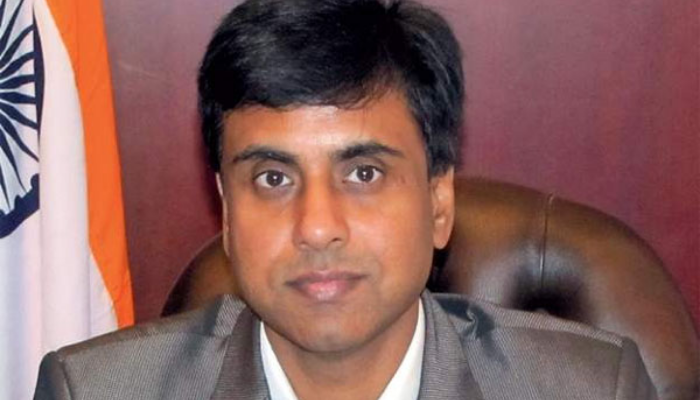Russia Bans Amnesty International Amid Expanding Crackdown on Rights Groups

Russia designated Amnesty International ‘undesirable’, halting operations.
Russia has banned Amnesty International as an “undesirable organisation,” intensifying its crackdown on dissent and human rights advocacy since the Ukraine invasion.
Russian authorities have officially banned Amnesty International from operating within the country, labelling the organisation as “undesirable” under a 2015 law that criminalises cooperation with foreign entities deemed a threat to national security.
The move, announced on Monday by the office of the Russian Prosecutor General, forces the international human rights organisation to cease all activities in Russia. Individuals found cooperating with the group could now face legal prosecution.
Crackdown on dissent intensifies
The ban marks the latest escalation in Russia’s systematic clampdown on independent organisations, media, and political dissent. The crackdown has accelerated significantly since Russia launched its full-scale invasion of Ukraine in February 2022.
In its statement, the Prosecutor General’s office accused Amnesty International of engaging in what it described as “Russophobic projects” and alleged that the group supported efforts to politically and economically isolate Russia. The office did not provide specific examples to substantiate these claims.
As of Monday, Russia’s registry of “undesirable organisations” includes 223 entities. The list encompasses a broad range of civil society institutions, independent news agencies, and advocacy groups—many of them foreign-based.
A legacy of human rights advocacy
Founded in 1961, Amnesty International is one of the world’s leading human rights organisations. It monitors and reports on abuses globally and has long advocated for prisoners of conscience, freedom of expression, and legal accountability.
In recent years, the group has been an outspoken critic of the Russian government. It has published reports accusing Russian forces of committing crimes against humanity in Ukraine and has condemned the Kremlin’s sweeping repression of political opposition and civic activism.
While Amnesty International did not immediately issue a public response to the ban, the organisation has previously described efforts to restrict its operations in Russia as politically motivated and aimed at silencing criticism of the government.
Broader pattern of restrictions
The ban is part of a broader trend in Russia, where numerous foreign and domestic organisations have been forced to suspend their work or shut down entirely. The 2015 law on “undesirable organisations” enables authorities to ban any group deemed to threaten the country's constitutional order or national defence.
Earlier targets of the legislation include prominent Russian rights groups such as Memorial, which was shuttered in 2021 after decades of documenting Soviet-era repression and contemporary human rights violations.
Internationally, Russia’s measures have drawn criticism from Western governments and global watchdogs, who argue that the crackdown undermines civil society and isolates Russian citizens from international legal norms and support structures.
Context: Legal framework and political climate
The legal mechanism underpinning the designation of “undesirable organisations” was introduced in 2015, following earlier laws targeting “foreign agents” operating in Russia. These laws have increasingly been used to control the flow of foreign funding and influence in domestic affairs.
Since the invasion of Ukraine, Russia has implemented a wide range of legal and extralegal measures to stifle dissent, block independent journalism, and criminalise criticism of the military. Thousands of individuals have been detained under laws banning “discrediting the armed forces” or spreading “false information.”
Amnesty International’s designation reflects the Kremlin’s continued effort to eliminate international oversight and accountability mechanisms, particularly those that spotlight rights abuses linked to the war in Ukraine and domestic governance.
While Russian officials maintain that such steps are necessary to protect national sovereignty, critics argue that the measures severely limit freedom of expression and dismantle the institutional framework needed for democratic governance.
The ban on Amnesty International is seen by many observers as a symbolic and practical blow to human rights advocacy in Russia. It reinforces the country’s growing isolation from global civil society and highlights the increasing risks faced by those who speak out against state policy.

India Showcases Scalable Health Model at World Health Assembly 2025
Prime Minister Narendra Modi outlines India’s inclusive and digital health reforms at the 78th World Health Assembly, offering a model for the Global South.
| 2025-05-21

India-Netherlands Relations Deepen During Jaishankar’s Official Visit
Indian External Affairs Minister S. Jaishankar's visit to the Netherlands highlights expanding India-Netherlands ties across trade, defence, and technology sectors.
| 2025-05-20

France Secures €20 Billion Investment at Choose France Summit
France attracts €20 billion in new investment at its annual Choose France summit, with President Macron highlighting major international projects across sectors.
| 2025-05-20

Portugal Election 2025: Third Vote in Three Years Unlikely to End Political Deadlock
Portugal holds its third general election in as many years, with no clear parliamentary majority expected, prolonging political instability.
| 2025-05-18

India Appoints Anurag Bhushan as Ambassador to Sweden
Anurag Bhushan has been named India's next Ambassador to Sweden, strengthening a growing bilateral relationship rooted in innovation, trade, and diplomacy.
| 2025-05-15




